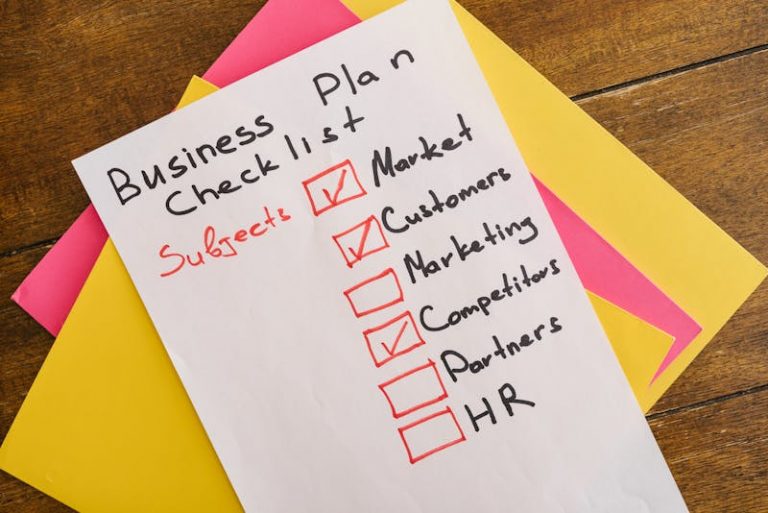

Business travel offers exciting work opportunities but can also be demanding. According to the Dream Big, Travel Far Blog, 1.3 million people travel daily in the U.S. alone. With such a great number of travelers, it can be hectic to move around new places, so you must plan adequately. Without sufficient planning, your trip could end up being frustrating. Discover nine tips for business travel to help you be prepared for any event.
1. Pack Versatile Clothing
One of the best tips for business travel is to pack different types of clothing. As you go through different places, you’ll need versatile clothing to be adaptable. These clothes allow you to switch between formal business events and casual meetups easily. With a versatile wardrobe, you don’t have to pack all types of outfits, which can save space. Besides, you want to look professional but comfortable during long flights, even in the face of unexpected changes.
Go for neutral colors like black, gray, and navy because they are easy to mix and match. Since you want to pack as lean as possible, choose wrinkle-resistant fabrics so you don’t need to pack ironing devices. Another tip is choosing appropriate attire for formal meetings and casual outings. Men can carry suits, casual pants, and shirts, while women can carry blouses, blazers, and versatile dresses.
Opt for rolling your clothes over folding when packing for a business trip. Folding helps save space and minimizes wrinkles. You can also use packing cubes to help you organize outfits and accessories efficiently. Have some space for shirts, trousers, pieces of jewelry, and toiletries. Place your heavy items at the bottom to prevent them from crushing your clothing.

2. Carry Essential Documents and Copies
One of the most essential business travel tips is carrying documents such as passports and vaccines clearance. Your essential documents are critical for identification and compliance with immigration and travel regulations. You’ll need these documents to check in at the airport or hotel or get a rental car. A good tip is to have physical copies in case your documents get lost. Copies can be a lifesaver by expediting replacements to reduce disruption of your travel plans.
The most critical document you must have is the passport. Ensure yours is valid for the duration of your trip. Some destinations need your visa, so have it stamped on your passport. For domestic travel, a government-issued photo ID is required. Also, you may need specific business-related documents, such as contracts and meeting agendas, depending on the purpose of your trip.
Get a water-tight, secure travel pouch for holding essential documents. Some come with RFID-blocking technology to protect your documents from electronic theft. Invest in a secure cloud storage service on a password-protected device for digital copies. It’s also smart to keep physical copies separate from originals to reduce the risk of losing both. Alternatively, share copies of essential documents and itineraries with a trusted person who can assist you in emergencies.
3. Charge Devices and Bring Chargers
One of the easy-to-forget tips for business travel is not bringing a charging device and cables. Then you have to purchase a new one, which could be costly. Some restaurants have different charging ports that may not match your charger, so you should always bring your charging devices. If your phone goes off when you’re about to set a meeting or book a business call, it could affect communication and your reputation.
Most business trips are solo; you may get bored if your phone is off. If there’s a flight delay, you may have to rely on lounge entertainment that may not be custom-made. Besides, if you were in an emergency, it would be more challenging to maneuver it without help. So, before leaving your home, ensure your smartphone, laptop, and tablet are fully charged. Next, pack your power bank and charging accessories.
Use a cable organizer to keep your cables tangle-free to increase productivity and reduce decision-making overload. Invest in a powerful backup bank that can charge multiple devices in case of a blackout. It’s also helpful to check voltage compatibility if traveling to a different time zone. A universal adapter can help you keep your devices charged even in a different country.

4. Plan for Unexpected Delays
It may be naive to expect everything to go as planned during a trip. Security concerns, weather changes, and political events sometimes cause flight delays. One of the most useful tips for business travel is planning for the unexpected. For instance, you could be late because of a delay by payroll services to dispatch financial resources early. Plan for alternative sources of funding if your finances have a delay.
Planning prevents disruptions in your schedule that could impact your work goals. If there’s a traffic jam, a flight delay, or other issues, you may be late for essential meetings. If you’re traveling for business, you want to make the best impression of a committed worker. Besides, the later you are, the more stressed you’ll be, which could detract from your productivity. Yet if you plan earlier, delays will affect you but not as much as they would without prior planning.
Buying travel insurance is one of the best ways to plan for delays. That way, you don’t have to worry about finances if a flight is canceled. Always plan your trips within a flexible schedule. You shouldn’t plan back-to-back meetings without a buffer time because you’ll be stressed if a flight is delayed. Have backup accommodation planned if you can’t reach the destination in time.
5. Stay Organized with A Travel Checklist
One of the most underestimated tips for business travel is having a travel checklist. First, it helps you stay organized so you don’t forget essential tasks such as looking for a slumber party dog boarding, or packing your toiletries. It helps you be efficient and reduce time wastage. Second, a travel checklist is a risk prevention tip that ensures you don’t leave behind your essential documents. Thus, you’ll have peace of mind that you have completed all travel-oriented tasks.
Start by identifying essential tasks and items for your business travel. For example, if your trip will be long, you may need a container on wheels mobile storage before traveling. Similarly, you need versatile clothing, essential documents, and work materials. Make categories that will make it easier to get the job done. Alternatively, you can look for free online templates for business travel. Tailor the template to match your needs and preferences.
Use your checklist to ensure you get all the essentials in your travel bags. A good tip is to have all the items on one side and your bag on the other. Have someone tick each item you pack to be sure. Next, check against your checklist that all documents are present. Travel checklists are not only for packing but also for traveling activities. Have a different sheet highlighting your itinerary and planned activities, including appointments and meetings.

6. Download Important Apps and Maps
According to one report, 72% of travelers report getting lost in a new city and using a whopping 30 minutes to regain their north. You don’t want to miss your business meeting because you got lost. One of the critical tips for business travel is having the right tools to navigate new places. That could be GPS units, apps, and maps that can let you know which way you should go.
Start by researching the places you’ll visit for business or pleasure. Having loads of information makes it harder to get lost because you can rely on landmarks to backtrace your steps. Have a to-do list of where you’ll be going during the day. Leave your hotel room half an hour earlier to give you room to navigate to your destination without hassle. Even better, call the destination to double-check the directions.
Have a backup option that’s not reliant on technology. Sometimes, your internet connection may be poor, or your device may go off. Having a physical map could be the difference between an easy commute and a frustrating business trip. For security reasons, share your location with a trusted person in case something happens and you lose key documents.
7. Stay Hydrated and Well-Rested
Business travel is punctuated with formality and keeping your best foot forward. You have meetings, events, and calls to make, so spending the whole evening reviewing all the documents seems too reasonable. Yet, it would be best to take care of yourself to deliver the best results. Your employee benefits provider may have already approved health insurance or wellness programs that can help you get relaxed and well-hydrated, so take advantage of these.
According to statistics by the NIMH, 72% of entrepreneurs have faced mental health issues, which starks in comparison to only 48% of non-entrepreneurs. The odds are already against business owners, so rejuvenating yourself is one of the best tips for business travel. You may only deliver sub-par contributions when you haven’t slept sufficiently and are tired.
Instead, plan to refresh your body with a warm bath and a good meal. You can visit local med spas for a quick treat as part of your benefits package. Ensure you hydrate during the trip to avoid headaches. Also, visit local gyms to get your blood pumping and good hormones flowing using your wellness package program. Self-care is not only for self-assured Instagram stars; you deserve a break, too, so you can deliver the best results.

8. Network and Build Relationships
Business trips are a great time to widen your network and build long-lasting relationships, so take this opportunity to create productive relationships. Networks can help you understand local culture and access useful resources. For instance, an acquittance can recommend a helpful physical therapist if needed. Besides, if an emergency arises, the people you know and have connected with can help you escape trouble.
To network and build valuable relationships, you must prepare even before starting your trip. Research industry-level events in the city you’re visiting to have an idea of networking activities you can do. Have plenty of business cards printed before the trip to share with new connections. One of the best tips for business travel is engaging in meaningful conversations with the right people.
Networking allows you to connect with people of diverse backgrounds and expertise. These enlightening conversations can spark personal and career growth better than traditional learning. Building relationships can also lead to new opportunities that boost your business to higher heights. Most people are more comfortable doing business with people they know or have met.
9. Prioritize Safety and Security
Even for non-business travelers, safety and security have always been essential. Air travel may be the safest travel mode, but other security issues detract from this safety. For example, Travel Wise says travel diarrhea is the most predictable illness affecting travelers. Some travelers may face other travel security issues, such as lost documents, hijackings, and viral infections. You are ultimately responsible for keeping yourself safe by practicing due diligence and safe traveling practices.
While you can’t possibly prepare for every occurrence, you can arrange predictable events. For instance, knowing where you can get auto repair in advance would be good if you’re driving through a new city. Gain as much information about your travel destination as possible because information is power. Share your travel itinerary with trusted people in case something happens. That way, they can locate you easily and send help when you need it the most.
To bring it all together, business travel requires adequate planning to make the trip memorable and successful. Issues such as flight delays, losing documents, and being a victim of crime can all detract from this success. However, using these nine tips for business travel, you can plan a safe, secure, efficient, and successful trip that meets your business goals. The best way to apply these tips is by implementing them before traveling. Please continue exploring our website to learn more helpful tips for everyday life.






